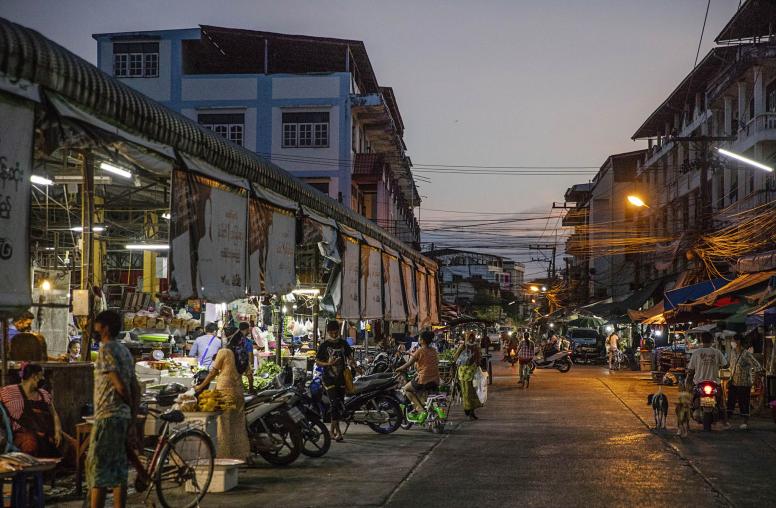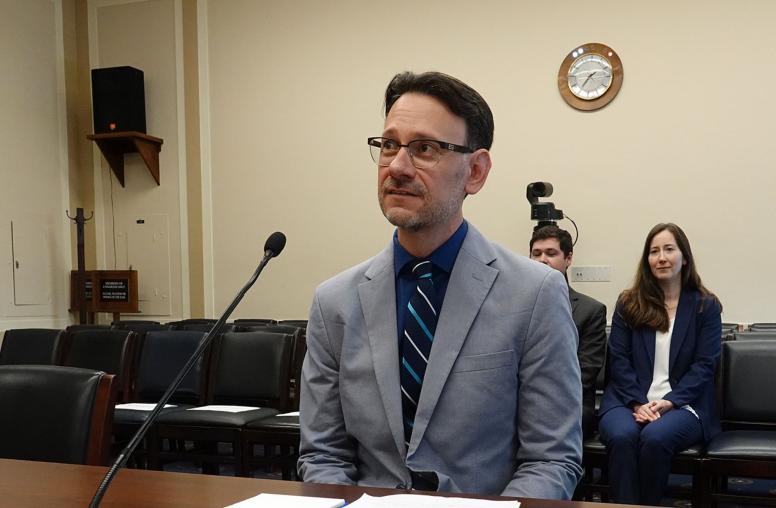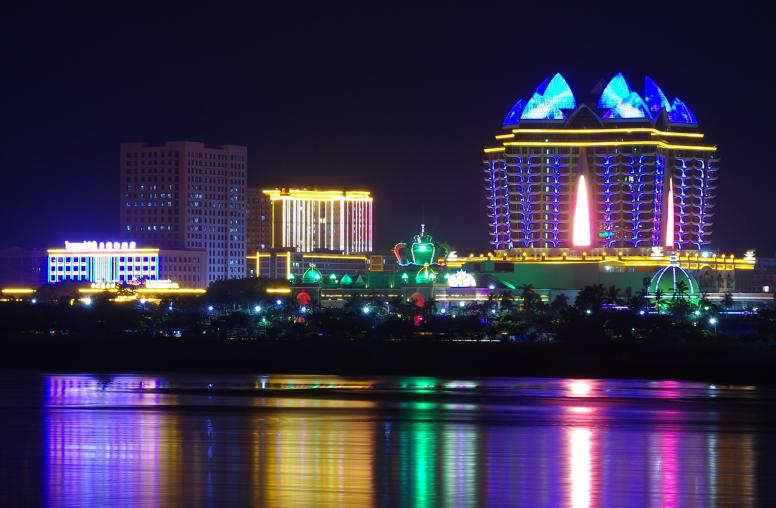Lessons from Cambodia’s Paris Peace Accords for Political Unrest Today
In December 2016, to mark the twenty-fifth anniversary of the 1991 Paris Peace Agreement that ended the decade-long war between Cambodia and Vietnam, USIP hosted a conference to examine the implementation of that agreement and how the decisions made in the past have affected increasing political unrest in the country. Panelists included several key actors from that historic agreement and Cambodia’s human rights community. Since then, the political situation in Cambodia has become tense as the government has sought to marginalize opposition groups. This Brief draws on the lessons from that conference and offers recommendations on priorities for the international community in advance of the upcoming national elections in Cambodia.
Summary
- Cambodia’s October 1991 Paris Peace Agreement (PPA) was the first major multilateral peace accord after the end of the Cold War.
- Despite the PPA’s remarkable success at ending a complex, decades-long conflict, a political crisis following Cambodia’s 2013–14 elections shows that the peace process is still a work in progress.
- The leader of Cambodia’s main opposition political party quit in February 2016 claiming govern-ment persecution. Two weeks later, the Cambodian Parliament revised the Political Party Law to enable dissolution of the opposition, setting the stage for possible conflict around local com-mune elections scheduled for June 2017.
- The current unrest in Cambodia can be traced to the implementation of the PPA and the UN Transitional Authority in Cambodia, which oversaw initial implementation of the 1991 accords. Specifically, the power-sharing elements of the accords were not fully implemented, which has effectively allowed one-party rule for the past twenty years.
- The political unrest in Cambodia can be addressed by returning to the principles of the PPA. In particular, strong election monitoring is needed to reduce the risk of violence. A track II dialogue about political participation in elections supported by the international community could also help reduce tensions.
Background
Marking the twenty-fifth anniversary of the 1991 Paris Peace Agreement (PPA) that ended the Vietnam-Cambodia conflict, the United States Institute of Peace hosted a conference to examine the implementation of the PPA and how decisions made have affected the increasing unrest in the country. Panelists included key actors from the PPA as well as from Cambodia’s human rights community.
In April 1975, the war in Vietnam ended, but in Cambodia the Khmer Rouge (KR) revolutionaries took over, ruling until January 1979. During that time, more than 1.7 million people died from star-vation, overwork, lack of health care, and summary execution. In December 1978, the Vietnamese army swept into Cambodia with a core group of former KR Cambodians who had fled to Vietnam during the Vietnamese War. Civil war then broke out in Cambodia and along the Thai-Cambodian border between four factions: the Vietnamese-backed People’s Republic of Kampuchea (PRK) headed by Prime Minister Hun Sen (who remains prime minister today), versus the KR and the noncommunist resistance (NCR) led by Cambodia’s former king Sihanouk, and Republicans led by Son Sann. Prolonging the conflict, each side was supported by external actors, who played along Cold War divides. The war stretched on for fourteen years until the autumn of 1991.
The 1991 PPA, which ended the Vietnam-Cambodia conflict, was concluded at a unique time of geopolitical confluence. The Cold War had ended; major international powers, regional powers, and the Cambodian parties had reached a stalemate; and all were anxious for the conflict to be over. Japan was seeking a seat on the United Nations Security Council (UNSC) as well as a growing role in the region. The Soviet Union was collapsing and its armed forces and proxies were leav-ing Cambodia. The complicated task of the lead U.S. negotiator, Under Secretary for Asian and East Asian Affairs Richard Solomon, was to persuade the five permanent members of the United Nations Security Council to support a UN peace agreement and their Cambodian clients. Other important actors—such as France’s Claude Martin, Indonesia’s Ali Alitas, and Australia’s Gareth Ev-ans—also played crucial roles. “As negotiations went forward there was always a sense of tragedy overhead, demonstrated by a constant vigil led by monks, chanting and praying for peace,” Ambas-sador Mark Storella, a former member of the U.S. delegation to the PPA and later Deputy Chief of Mission in Cambodia, remembered. “Each of the UN Security Council’s P-5 members supported one of the four Cambodian factions and pulled their clients along to agreement.”
Implementation of the PPA
Once signed, the PPA created the first large multinational UN peacekeeping mission of the post–Cold War era. The UN Transitional Authority in Cambodia (UNTAC) was a massive undertak-ing, including approximately sixteen thousand military personnel and five thousand civilians, and had the overall responsibility for securing the peace and promoting human rights. In addition, it was supposed to take over official interim governing duties until a new constitution was ratified and national elections were held. UNTAC was widely praised for its success in returning 360,000 refugees, and in holding free and fair elections, in which nearly 90 percent of the population voted.
The Royalist FUNCINPEC party, which began as a resistance movement against the ruling PRK government, won a plurality with 48 percent of the vote. The Cambodian People’s Party (CPP), however, threatened secession and a return to civil war if it was not given an equal share in government. Meanwhile, the international community supported the formation of a coalition government under an awkward dual prime minister system led by Prime Minister Hun Sen and Prince Norodom Ranariddh. Thus the Royal Government of Cambodia was created.
The international community’s choice to support a coalition government with the CPP even though FUNCINPEC had won more votes was seen by many of the USIP conference participants as a root cause of the problems in Cambodia today, signaling early on to the CPP and Prime Minister Hun Sen that the international community would back down on enforcing political rights in the face of threats to stability.
Now, twenty-five years later, the CPP still has a monopoly on economic and political power. In 1997, following another split election, Hun Sen led a coup to end the dual prime minister arrangement. The international community initially objected but ultimately worked with the new government. Since then, key opposition leaders have been threatened and exiled and human rights defenders are in jail and receive death threats. The CPP has maintained political dominance in marginally acceptable elections. In February 2017, the leader of the opposition party resigned, citing pressure from the CPP. In early March, the CPP-controlled Parliament revised the Political Parties Law to allow for the dissolution of the main opposition party. The roots of these human rights violations are found in the inadequacies of the PPA implementation.
Lessons Learned
Conference panelists offered and discussed the following lessons as a way to understand the significance of the PPA’s track record and apply the lessons to future peace agreements.
Bringing peace to most of Cambodia was remarkably successful, but implementation and follow-up were more challenging. UNTAC had great success implementing elections and refugee return. But after a widely reported incident, in which UNTAC chief Yasushi Akashi turned away from KR areas because of a flimsy bamboo pole roadblock, the KR dropped out of the process and returned to the jungle. UNTAC also proved unable to monitor the work of the civil administration, judiciary, and police—a lack of control that prevented it from maintaining the crucial balance of power between the former PRK government and the NCR politicians.
Elections do not end conflict: the international community needs to support political and economic rights in peace agreements over the long term. The 1993 elections were a widely proclaimed success and initially provided Cambodians with much hope for the future. Elections alone are not enough, however. A neutral political environment, security sector reform, and economic development are crucial. These were all inadequate in Cambodia, providing the root causes of human rights problems.
Without disarmament and demobilization, full implementation of the PPA was impossible. The lack of effective demobilization, disarmament, and reintegration was a fundamental problem in implementing the PPA. The former PRK forces of Prime Minister Hun Sen were never disarmed, and the NCR forces lost their Western military support, and thus the political strength of the two groups could never be balanced. Furthermore, when the KR withdrew from the PPA, it continued the conflict through the 1990s.
Focus on building legal institutions, especially the judiciary. The Cambodian legal system was destroyed by the KR and civil war, and massive political and technical support for legal training and building professional police, prosecution, defense, courts, and corrections systems was needed. The international community provided substantial assistance but the judiciary never became fully independent, primarily because of the CPP-controlled government’s lack of political will. The lack of a neutral judiciary has enabled abuses of power by the state in many areas, especially in regard to freedom of political expression and free elections.
The U.S. Congress can help implement peace agreements. Congressional interest and pressure helped convince the U.S. administration to invest its political will in reaching a difficult peace agreement in Cambodia. Numerous senators, representatives, and congressional staffers were involved in and affected by the war in Vietnam and were committed to addressing the Cambodian consequences of that war. Congressional support was essential in funding the UN peacekeeping mission that followed to implement the PPA and to funding U.S. assistance to rebuild the country.
If transitional justice is sidelined, conflicts can simmer. Despite manifest evidence of KR atrocities, pressure from the KR and its patron, China, removed criminal accountability for KR crimes from the PPA. Western leaders were reluctant to frame a debate over counter-accusations related to U.S. bombings in Cambodia in the 1960s and 1970s. This omission set the stage for impunity for politi-cal crimes and human rights abuses. Not until 2007 did a tribunal of UN and Cambodian judges begin trials of former KR leaders for crimes against humanity. The Cambodian case did, however, contribute to current international norms that peace agreements should not include amnesty clauses for major crimes and should address transitional justice needs.
Recommendations
Unresolved grievances from early implementation of the PPA are evident in today’s political tensions in Cambodia. In particular, the lack of early forceful international intervention to enforce election results after the 1993 elections has led to a perceived right to power seized by the CPP. When this power is threatened, human rights abuses and political rights violations tend to increase. Two measures in particular could help establish a better balance between government and civil society and thus avoid violent conflict in the near future.
Support free and fair elections in 2017 and 2018. The opposition party formed in 2016 presents the possibility of a CPP defeat in the 2018 parliamentary elections. The CPP is already trying to limit participation in the 2017 local commune council elections, which is a likely precursor move to preserve its majority in the 2018 elections. Some combination of the eighteen signatories to the PPA, or a core group key donors among them, could begin messaging that it will monitor closely election rights, support the National Election Commission, and collectively support only a free and fair process.
Support high-level dialogue on cooperation among political factions. If the CPP seems likely to lose a significant share of votes in the 2017 or 2018 elections, then efforts to circumvent the demo-cratic process are likely and the international community should anticipate instability or violence around the election process. Internationally supported track II (unofficial) talks about how the opposition could be allowed full legal participation in politics and what the definition of a fair election process is could reduce the risk of election violence or general civil unrest. Although civil society actors have supported political dialogues in the past—including the Cambodian Research Development Institute’s Conflict Prevention in Cambodian Elections project—international com-munity participation for talks to generate changes in political behavior is important.
Conclusion
Human rights activist Thun Saray concluded that the promises of the PPA and UNTAC could have been better implemented had the donor community remained focused on and empha-sized human rights protection and reduced impunity. In the face of the shrinking political space, civil society actors need the strength of the donor community to support them. The goal of the PPA was to restore peace in the region, but no ongoing enforcement mechanisms beyond the Human Rights Commission and Special Rapporteur on Cambodia were in place. Because the PPA had a start date but no end date, it can be considered as still in force for both the Cambo-dians and the international community, which means that the signatories have an obligation to remain engaged.
About this Brief
This Peace Brief, which draws on a December 2016 conference hosted by the United States Institute of Peace (USIP) assessing the Cambodia peace accords of 1991, offers recommendations on new priorities for the international community in anticipation of the upcoming elections in Cambodia. Laura McGrew has a doctorate in peace studies and a masters in international public policy. She is a consultant in peacebuilding, human rights, transitional justice, and gen-der. She has worked in Cambodia since 1987 as well as in Rwanda, Myanmar, Sri Lanka, Afghanistan, Bosnia, and other countries. Scott Worden, director of Afghanistan and Central Asia programs at USIP, has worked in Cambodia on rule of law development programs and has an extensive background in recon-struction, development, democracy and governance.



